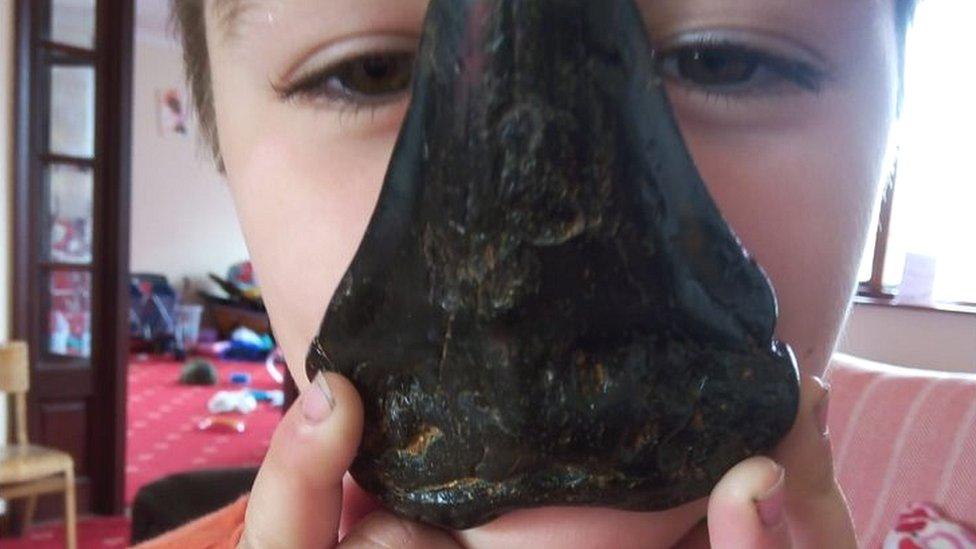Boy discovers tooth of extinct shark on Clacton beach
- Published
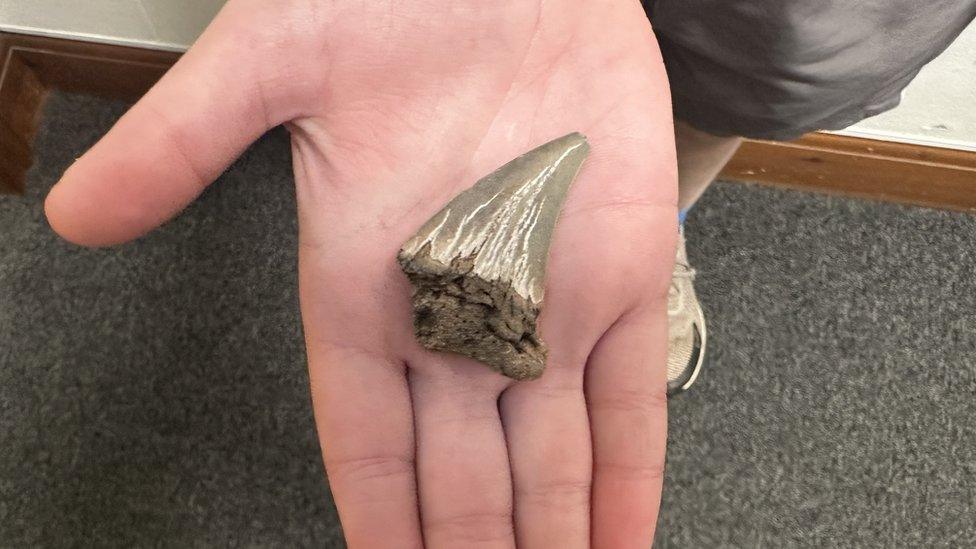
Kenzie, 12, found the tooth while digging on Clacton beach but thought it was a stone
A "strange-looking stone" found on a beach has turned out to be the tooth of a prehistoric shark, an expert said.
Twelve-year-old Kenzie, from Yoxford, Suffolk, found the tooth while digging at the beach in Clacton-on-Sea.
Shark expert Prof Ben Garrod confirmed it belonged to Otodus Obliquus, "one of the first super predators" of the sea.
"I was digging and something came to my eye. I was like 'oh my god, that's a tooth'," said Kenzie.
According to Prof Garrod, who works as a broadcaster and evolutionary biologist at the University of East Anglia (UEA), Otodus Obliquus means 'teeth like an ear'.
The creatures lived between 40 and 60 million years ago, and grew up to 10 metres (32ft) long.
It is thought to have been an ancestor of the famous Megalodon, once the largest fish in the sea.
Prof Garrod said the shark was "one of the first super predators, just after the asteroid destroyed all the dinosaurs".
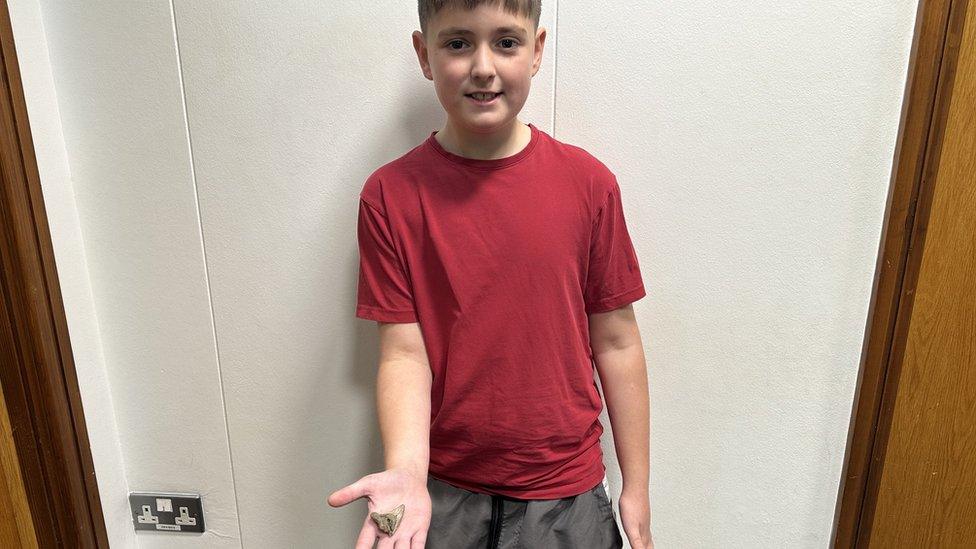
12-year-old Kenzie said he felt lucky to have discovered the prehistoric shark tooth
"These sharks had about 40,000 teeth across their lifetimes because they replaced their teeth on a regular basis," Prof Garrod continued.
The professor recommended that Kenzie preserve the tooth with a mix of water and PVA glue.
Listen: Boy on his prehistoric shark tooth find
"It'll protect it from drying out inside your home. If not, it might crack," he said.
Kenzie said he felt "very lucky" to have found the tooth and it sparked his interest to dig more.
"I feel like I'm going to start [digging] because I could maybe find a Megalodon," he said.

Follow East of England news on Facebook, external, Instagram, external and Twitter, external. Got a story? Email eastofenglandnews@bbc.co.uk , externalor WhatsApp on 0800 169 1830
Related topics
- Published2 August 2023
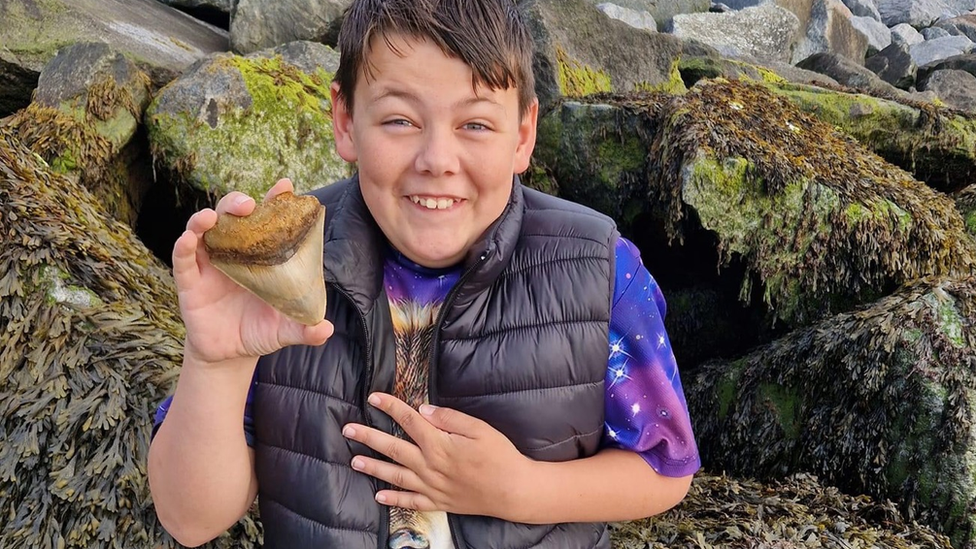
- Published21 July 2023
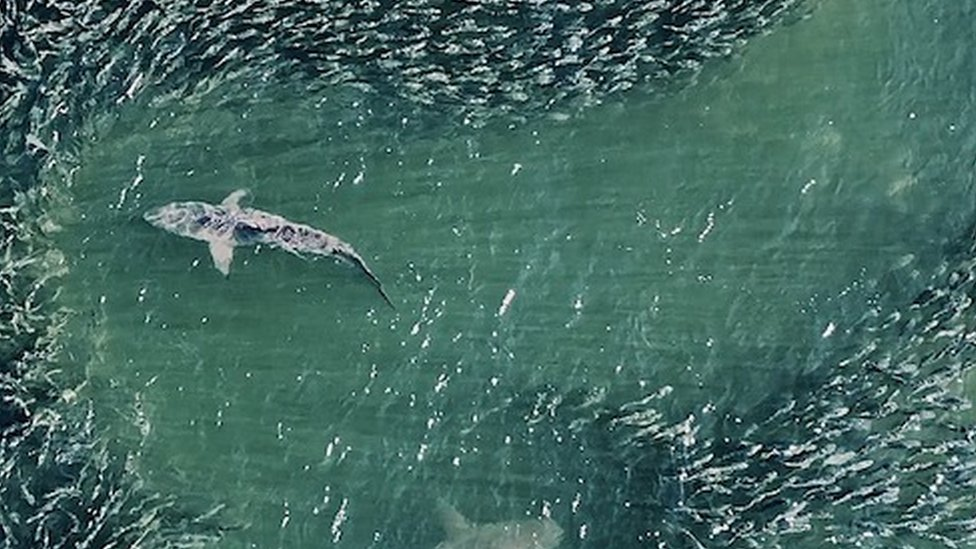
- Published13 July 2022
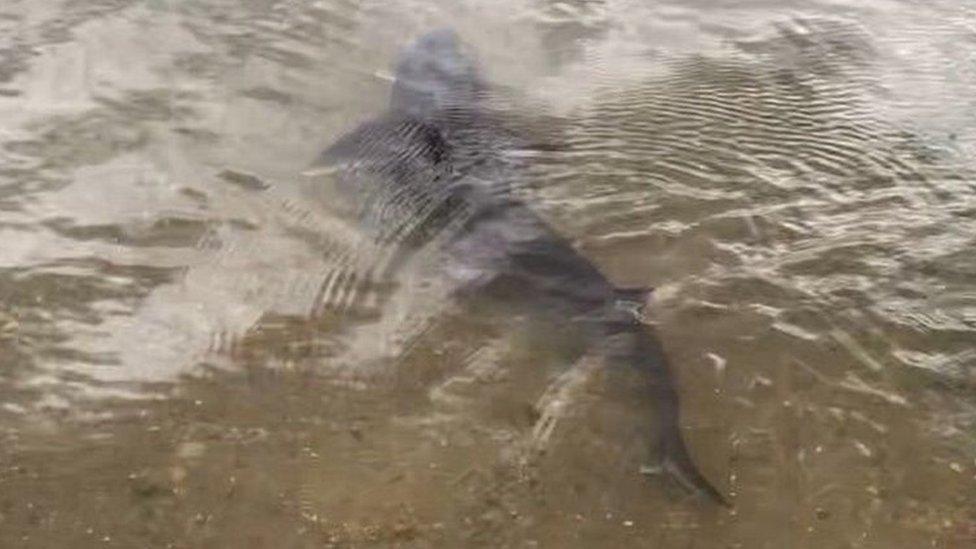
- Published10 January 2023
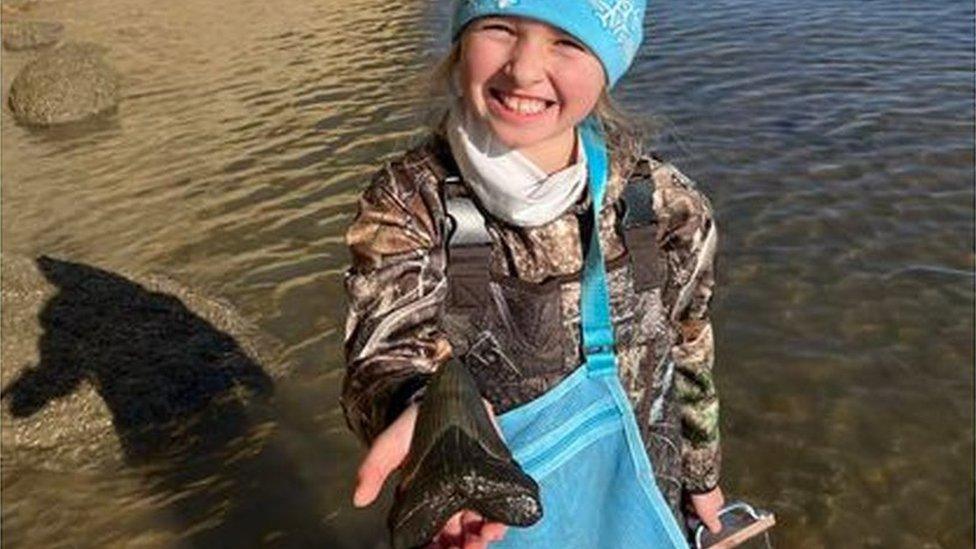
- Published9 May 2022
